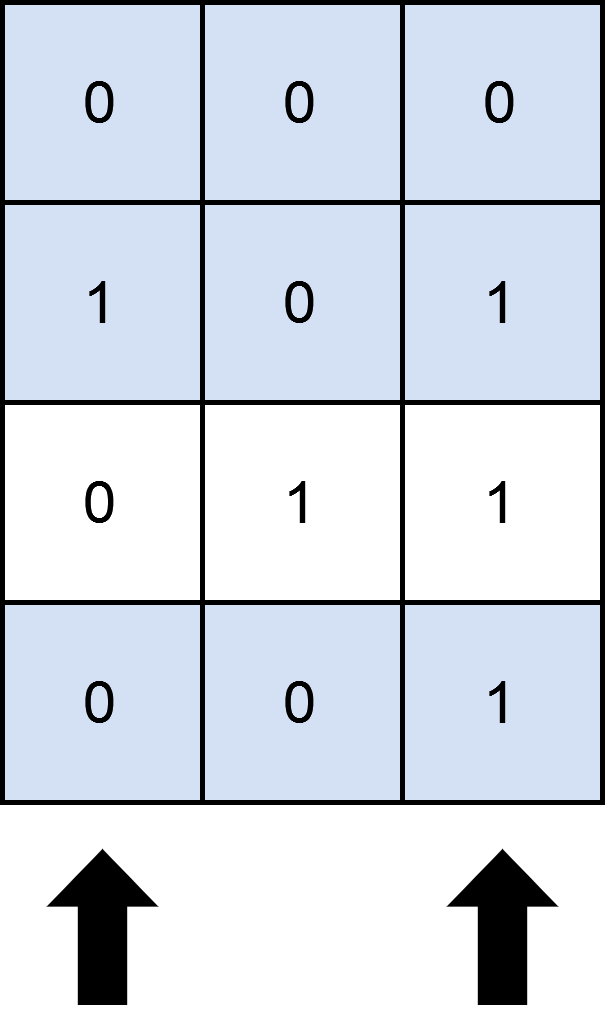LeetCode-in-Java
2397. Maximum Rows Covered by Columns
Medium
You are given a 0-indexed m x n binary matrix matrix and an integer numSelect, which denotes the number of distinct columns you must select from matrix.
Let us consider s = {c1, c2, ...., cnumSelect} as the set of columns selected by you. A row row is covered by s if:
- For each cell
matrix[row][col](0 <= col <= n - 1) wherematrix[row][col] == 1,colis present insor, - No cell in
rowhas a value of1.
You need to choose numSelect columns such that the number of rows that are covered is maximized.
Return the maximum number of rows that can be covered by a set of numSelect columns.
Example 1:

Input: matrix = [[0,0,0],[1,0,1],[0,1,1],[0,0,1]], numSelect = 2
Output: 3
Explanation: One possible way to cover 3 rows is shown in the diagram above.
We choose s = {0, 2}.
-
Row 0 is covered because it has no occurrences of 1.
-
Row 1 is covered because the columns with value 1, i.e. 0 and 2 are present in s.
-
Row 2 is not covered because matrix[2][1] == 1 but 1 is not present in s.
-
Row 3 is covered because matrix[2][2] == 1 and 2 is present in s.
Thus, we can cover three rows.
Note that s = {1, 2} will also cover 3 rows, but it can be shown that no more than three rows can be covered.
Example 2:

Input: matrix = [[1],[0]], numSelect = 1
Output: 2
Explanation: Selecting the only column will result in both rows being covered since the entire matrix is selected.
Therefore, we return 2.
Constraints:
m == matrix.lengthn == matrix[i].length1 <= m, n <= 12matrix[i][j]is either0or1.1 <= numSelect <= n
Solution
public class Solution {
private int ans = 0;
public int maximumRows(int[][] matrix, int numSelect) {
dfs(matrix, /* colIndex= */ 0, numSelect, /* mask= */ 0);
return ans;
}
private void dfs(int[][] matrix, int colIndex, int leftColsCount, int mask) {
if (leftColsCount == 0) {
ans = Math.max(ans, getAllZerosRowCount(matrix, mask));
return;
}
if (colIndex == matrix[0].length) {
return;
}
// choose this column
dfs(matrix, colIndex + 1, leftColsCount - 1, mask | 1 << colIndex);
// not choose this column
dfs(matrix, colIndex + 1, leftColsCount, mask);
}
private int getAllZerosRowCount(int[][] matrix, int mask) {
int count = 0;
for (int[] row : matrix) {
boolean isAllZeros = true;
for (int i = 0; i < row.length; ++i) {
if (row[i] == 1 && (mask >> i & 1) == 0) {
isAllZeros = false;
break;
}
}
if (isAllZeros) {
++count;
}
}
return count;
}
}

